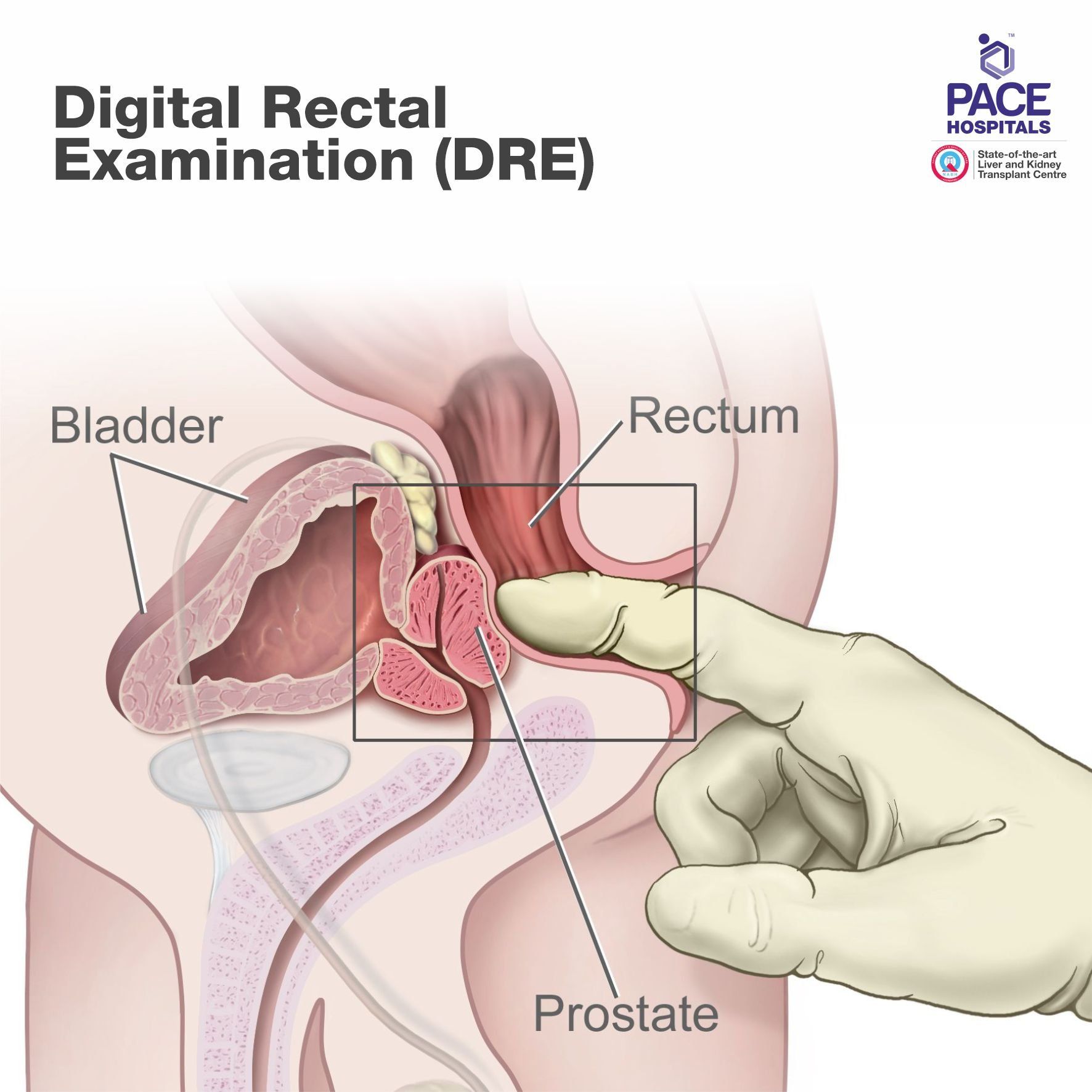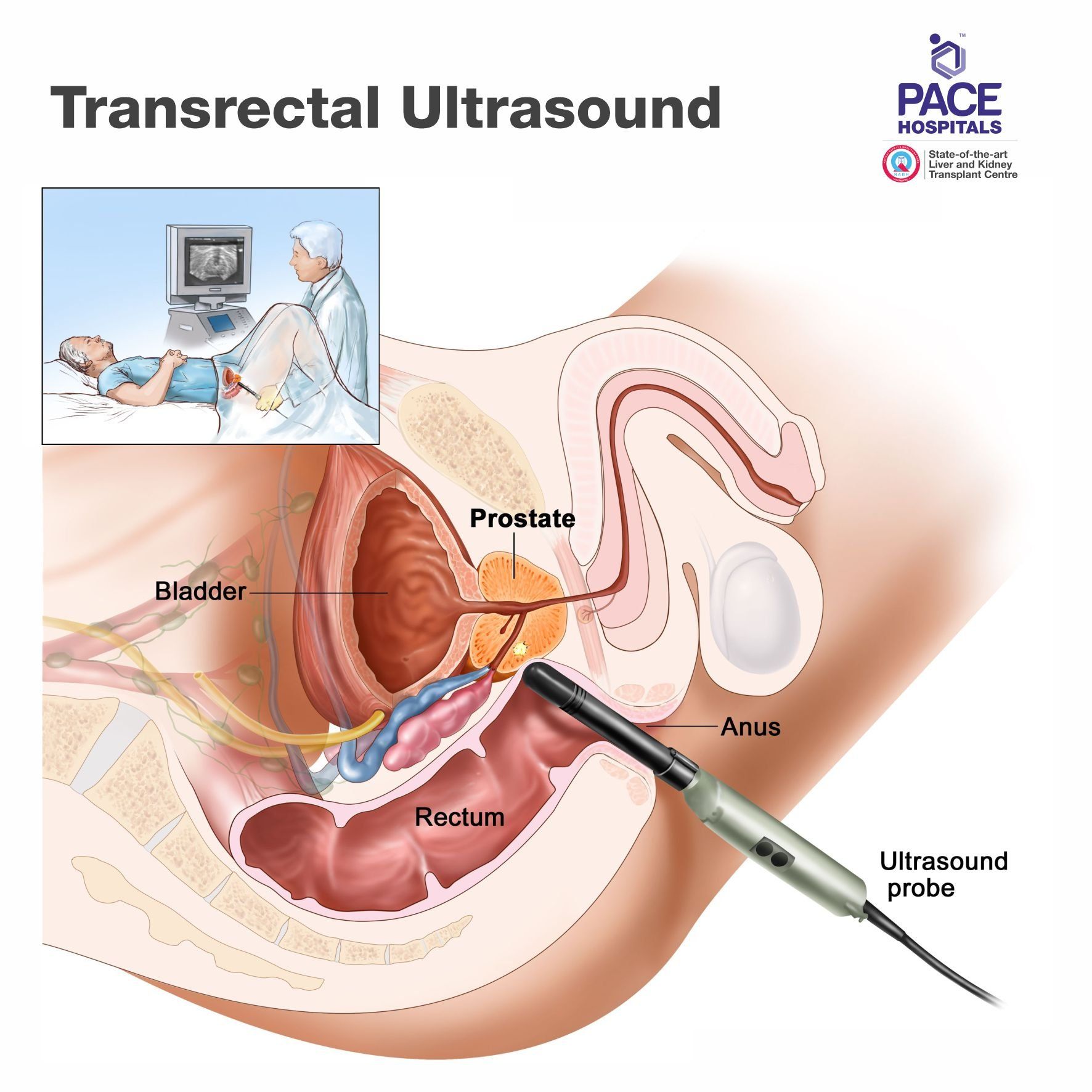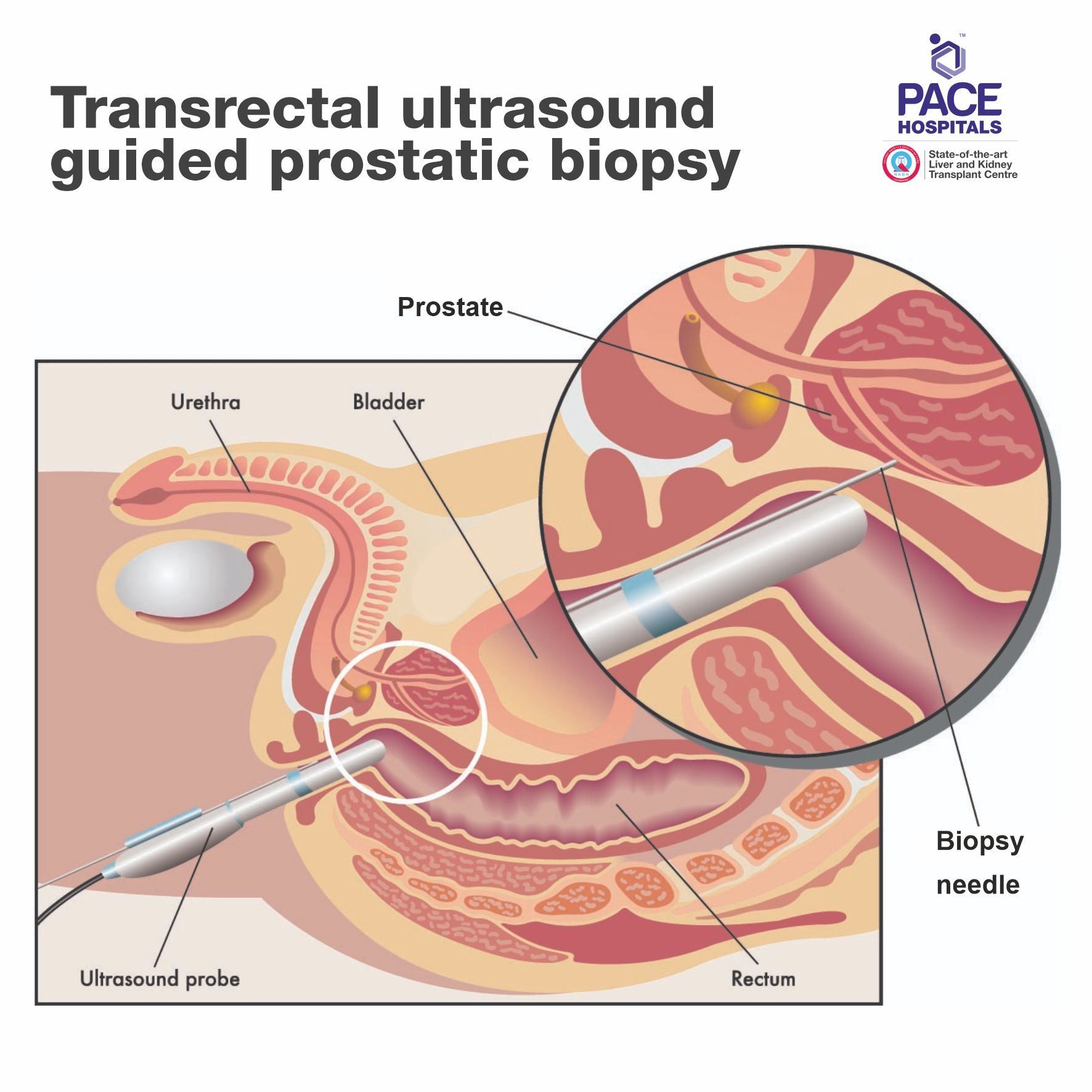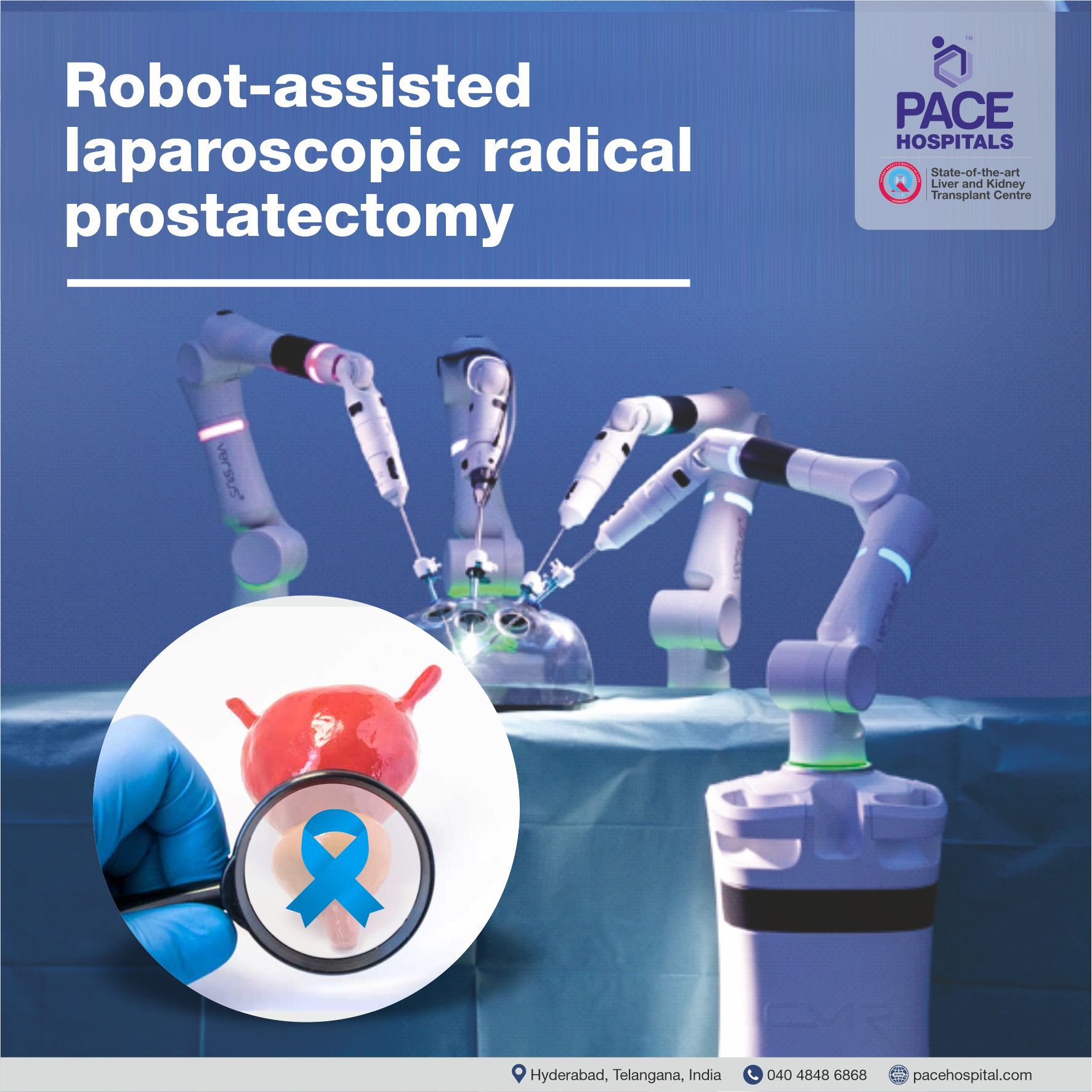हैदराबाद में प्रोस्टेट कैंसर का इलाज | सर्जरी और लागत
हम पेस हॉस्पिटल्स में हैदराबाद में सर्वश्रेष्ठ प्रोस्टेट कैंसर विशेषज्ञ डॉक्टरों, मेडिकल और सर्जिकल ऑन्कोलॉजिस्ट, लेजर और लेप्रोस्कोपिक यूरोलॉजिस्ट और रोबोटिक यूरोलॉजी सर्जनों की टीम है। वे निम्नलिखित कार्य करने में विशेषज्ञ हैं:
- ओपन रेडिकल प्रोस्टेटेक्टॉमी
- रेडिकल लैप्रोस्कोपिक प्रोस्टेटेक्टॉमी
- रोबोट सहायता प्राप्त लैप्रोस्कोपिक रेडिकल प्रोस्टेटेक्टॉमी
- प्रोस्टेट का ट्रांसयूरेथ्रल रिसेक्शन (TURP)
- पेल्विक लिम्फैडेनेक्टॉमी
- द्विपक्षीय ओर्कियोक्टॉमी
हाईटेक सिटी या मदीनागुडा में अपॉइंटमेंट का अनुरोध करें
प्रोस्टेट कैंसर उपचार पूछताछ
हम सुसज्जित हैं “दुनिया की पहली यूनिवर्सल सर्जिकल रोबोटिक प्रणाली”, अत्याधुनिक सुविधा, विश्व स्तरीय लेजर उपचार उपकरण व्यापक उपचार प्रदान करते हैं प्रोस्टेट कैंसर और इसकी जटिलताएं.
हम भारत में प्रोस्टेट कैंसर के उपचार के लिए सबसे उन्नत अस्पतालों में से एक हैं, जिसमें भारत के सर्वश्रेष्ठ प्रोस्टेट कैंसर विशेषज्ञ डॉक्टर, मेडिकल ऑन्कोलॉजिस्ट, लेजर और लेप्रोस्कोपिक यूरोलॉजिस्ट, रेडिएशन ऑन्कोलॉजिस्ट, पैरामेडिकल स्टाफ, डाइटिशियन और फिजियोथेरेपिस्ट की टीम है। हमारे डॉक्टर पुरुष और महिला मूत्र पथ और पुरुष प्रजनन अंगों से संबंधित स्थितियों के निदान और उपचार में विशेषज्ञ हैं।
प्रोस्टेट कैंसर का निदान
प्रोस्टेट ग्रंथि पुरुष प्रजनन प्रणाली का एक हिस्सा है, यह अखरोट के आकार का होता है और मूत्रमार्ग के हिस्से को घेरता है और मलाशय के सामने, मूत्राशय के ठीक नीचे स्थित होता है। प्रोस्टेट कैंसर का पता लगाने के लिए निम्नलिखित नैदानिक परीक्षणों का उपयोग किया जाता है:
शारीरिक जाँच – डॉक्टर सबसे पहले मेडिकल इतिहास, स्वास्थ्य संबंधी आदतें, पिछली बीमारी और उपचार की जानकारी लेंगे, फिर गांठ या बीमारी के किसी अन्य लक्षण की जांच के लिए शरीर की शारीरिक जांच करेंगे।
डिजिटल रेक्टल परीक्षा (डीआरई) - डॉक्टर दस्ताने पहने, चिकनाई लगी उंगली को मलाशय में डालते हैं और मलाशय की दीवार के माध्यम से प्रोस्टेट को महसूस करके असामान्य क्षेत्रों या गांठों की जांच करते हैं।

प्रोस्टेट-विशिष्ट एंटीजन (पीएसए) परीक्षण: प्रोस्टेट-विशिष्ट एंटीजन, प्रोस्टेट ग्रंथि द्वारा उत्पादित एक प्रोटीन है। प्रोस्टेट-विशिष्ट एंटीजन परीक्षण एक आदमी के रक्त में PSA के स्तर को मापता है। प्रोस्टेट कैंसर वाले पुरुषों में PSA का रक्त स्तर अक्सर बढ़ जाता है, इसके अलावा प्रोस्टेटाइटिस, सौम्य प्रोस्टेटिक हाइपरप्लासिया या प्रोस्टेट के बढ़ने जैसी अन्य गैर-कैंसर वाली स्थितियां PSA के स्तर में वृद्धि का कारण बन सकती हैं।
ट्रांसरेक्टल चुंबकीय अनुनाद इमेजिंग (एमआरआई): ट्रांसरेक्टल एमआरआई यह पता लगाने के लिए किया जाता है कि क्या कैंसर प्रोस्टेट के बाहर आस-पास के ऊतकों में फैल गया है। इस प्रक्रिया को न्यूक्लियर मैग्नेटिक रेजोनेंस इमेजिंग (NMRI) भी कहा जाता है।
ट्रांसरेक्टल अल्ट्रासाउंड:
ट्रांसरेक्टल अल्ट्रासाउंड का उपयोग मलाशय और आस-पास की संरचनाओं में असामान्यताओं को देखने के लिए किया जाता है। प्रोस्टेट की जांच करने के लिए मलाशय में एक अल्ट्रासाउंड जांच डाली जाती है। जांच शरीर के ऊतकों से ध्वनि तरंगों को उछालकर प्रतिध्वनि बनाती है जो प्रोस्टेट का सोनोग्राम बनाती है। इसे एंडोरेक्टल अल्ट्रासाउंड भी कहा जाता है।

ट्रांसरेक्टल बायोप्सी: प्रोस्टेट कैंसर का निदान करने और उपचार की योजना बनाने में मदद करने के लिए स्टेज के अलावा ग्लीसन स्कोर निर्धारित करने के लिए ट्रांसरेक्टल बायोप्सी का उपयोग किया जाता है। यह प्रक्रिया या तो ट्रांसरेक्टल अल्ट्रासाउंड का उपयोग करके की जाती है जिसे ट्रांसरेक्टल अल्ट्रासाउंड गाइडेड प्रोस्टेटिक बायोप्सी कहा जाता है या एमआरआई द्वारा जिसे ट्रांसरेक्टल एमआरआई गाइडेड बायोप्सी कहा जाता है।
ट्रांसरेक्टल बायोप्सी में मलाशय की दीवार के माध्यम से प्रोस्टेट में एक पतली सुई डालकर प्रोस्टेट से ऊतक के नमूने एकत्र किए जाते हैं। कभी-कभी बायोप्सी ऊतक के नमूने का उपयोग करके की जाती है जिसे प्रोस्टेट के ट्रांसयूरेथ्रल रिसेक्शन (TURP) के दौरान निकाला गया था ताकि इसका इलाज किया जा सके। बढ़े हुए प्रोस्टेट.
TRUS प्रोस्टेटिक बायोप्सी उन पुरुषों में की जाती है जिनका PSA स्तर तेजी से बढ़ रहा होता है और डिजिटल रेक्टल जांच (DRE) पर असामान्यता स्पष्ट दिखाई देती है। TRUS स्थानीय रूप से उन्नत प्रोस्टेट कैंसर वाले रोगियों में रेक्टल दीवार की भागीदारी के लिए एक अत्यधिक संवेदनशील निदान पद्धति है।

प्रोस्टेट कैंसर का उपचार
प्रोस्टेट कैंसर के उपचार के विकल्प और सुझाव रक्त में PSA के स्तर, ग्लीसन स्कोर, ग्रेड, पहली बार पता लगने या बार-बार होने पर निर्भर करते हैं, जैसे - चिकित्सा प्रबंधन, विकिरण चिकित्सा, हार्मोन थेरेपी, न्यूनतम-आक्रामक प्रक्रियाएँ और शल्य चिकित्सा प्रबंधन। प्रोस्टेटिक कार्सिनोमा उपचार का विकल्प या चयन अन्य स्वास्थ्य स्थितियों, प्रोस्टेट कैंसर के लिए पिछले उपचार और लक्षणों की गंभीरता पर निर्भर करता है।
अधिकांश प्रोस्टेट कैंसर शुरुआती अवस्था में पाए जाते हैं, जब वे धीरे-धीरे बढ़ रहे होते हैं। प्रोस्टेट कैंसर के चरण के अनुसार रोगियों के लिए उपचार के विभिन्न प्रकार इस प्रकार हैं:
सतर्क प्रतीक्षा और सक्रिय निगरानी
यदि प्रोस्टेट कैंसर प्रारंभिक अवस्था में है, धीरे-धीरे बढ़ रहा है, तथा कैंसर का उपचार करने से रोग से भी अधिक समस्याएं उत्पन्न हो सकती हैं, तो डॉक्टर सतर्क प्रतीक्षा और सक्रिय निगरानी की सलाह दे सकते हैं।
सतर्क प्रतीक्षा के दौरान, नियमित पीएसए परीक्षण, डिजिटल रेक्टल परीक्षा और प्रोस्टेट बायोप्सी आमतौर पर नहीं की जाती है। प्रोस्टेट कैंसर के कारण मूत्र अवरोध के मामले में लक्षणों से राहत के लिए उपचार शुरू किया जाएगा।
रोगी की जीवन प्रत्याशा और अन्य बीमारियों के आधार पर आगे की उपचार योजना पर चर्चा की जा सकती है ताकि यह निर्धारित किया जा सके कि सतर्क प्रतीक्षा और सक्रिय निगरानी उचित है या नहीं।
शल्य चिकित्सा
दौरान प्रोस्टेटेक्टॉमी सर्जरीप्रोस्टेट कैंसर के इलाज के लिए प्रोस्टेट ग्रंथि और, या आसपास के लिम्फ नोड्स को हटा दिया जाएगा। एक यूरोलॉजिस्ट या यूरोलॉजिक ऑन्कोलॉजिस्ट (सर्जिकल ऑन्कोलॉजिस्ट) प्रोस्टेट ग्रंथि से ट्यूमर को हटाने या पूरी ग्रंथि को हटाने के लिए सर्जरी करते हैं। यदि कैंसर प्रोस्टेट ग्रंथि के बाहर फैल गया है, तो कैंसर कोशिकाओं को नष्ट करने के लिए प्रणालीगत उपचार की आवश्यकता होती है। निम्न प्रकार की सर्जरी का उपयोग किया जाता है, और यह रोग के चरण और ग्रेड, रोगी की स्वास्थ्य स्थिति और अन्य कारकों पर निर्भर करता है।
- ओपन रेडिकल प्रोस्टेटेक्टॉमी: खुली प्रक्रिया के माध्यम से प्रोस्टेट ग्रंथि को हटाना
- रेडिकल लैप्रोस्कोपिक प्रोस्टेटेक्टॉमी: लैप्रोस्कोपिक उपकरणों के माध्यम से प्रोस्टेट ग्रंथि को हटाना
- रोबोट-सहायता प्राप्त लेप्रोस्कोपिक रेडिकल प्रोस्टेटेक्टॉमी: रोबोट-सहायता प्राप्त लेप्रोस्कोपिक उपकरणों के माध्यम से प्रोस्टेट ग्रंथि को हटाना
- प्रोस्टेट का ट्रांसयूरेथ्रल रिसेक्शन (TURP): इसका उपयोग अक्सर प्रोस्टेट कैंसर के रोगियों में मूत्र अवरोध के लक्षणों को दूर करने के लिए किया जाता है
- पेल्विक लिम्फैडेनेक्टॉमी
- द्विपक्षीय ओर्कियोक्टॉमी
विकिरण चिकित्सा
विकिरण चिकित्सा में कैंसर कोशिकाओं को नष्ट करने या उन्हें बढ़ने से रोकने के लिए उच्च-ऊर्जा एक्स-रे या अन्य प्रकार के विकिरण का उपयोग किया जाता है। विकिरण चिकित्सा कार्यक्रम में आमतौर पर एक निश्चित संख्या में उपचार शामिल होते हैं जो एक निश्चित समयावधि में दिए जाते हैं। विकिरण चिकित्सा के विभिन्न प्रकार ये हैं:
- बाह्य विकिरण चिकित्सा
- हाइपोफ्रैक्शनेटेड विकिरण चिकित्सा
- आंतरिक विकिरण चिकित्सा या ब्रैकीथेरेपी
- तीव्रता-संशोधित विकिरण चिकित्सा (आईएमआरटी)
- प्रोटॉन थेरेपी
- रेडियोफार्मास्युटिकल थेरेपी
रोबोट सहायता प्राप्त लैप्रोस्कोपिक रेडिकल प्रोस्टेटेक्टॉमी
में
रोबोट सहायता प्राप्त लैप्रोस्कोपिक रेडिकल प्रोस्टेटेक्टॉमी सर्जरी करने के लिए रोबोट-सहायता प्राप्त लेप्रोस्कोपिक और सर्जिकल उपकरण डालने के लिए आपके पेट में छोटे चीरे लगाए जाएंगे। यूरो-ऑन्कोलॉजिस्ट, सर्जन और कुशल तकनीशियनों की हमारी टीम रोबोटिक सहायता प्राप्त लेप्रोस्कोपिक उपकरणों का उपयोग करने के लिए प्रशिक्षित है।
हार्मोन थेरेपी
प्रोस्टेट कैंसर के उपचार में हार्मोन थेरेपी हार्मोन को हटाने या उनकी क्रिया को अवरुद्ध करने और कैंसर कोशिकाओं को बढ़ने से रोकने में मदद करती है। पुरुष हार्मोन की मात्रा को कम करने या उन्हें काम करने से रोकने के लिए दवाओं, सर्जरी या अन्य हार्मोन का उपयोग किया जाता है।
कीमोथेरपी
प्रोस्टेट कैंसर के उपचार में कीमोथेरेपी, जिसमें कैंसर कोशिकाओं की वृद्धि को रोकने के लिए दवाओं का उपयोग किया जाता है, या तो कोशिकाओं को नष्ट करके या उन्हें विभाजित होने से रोककर।
लक्षित चिकित्सा
प्रोस्टेट कैंसर के उपचार में लक्षित थेरेपी जिसमें विशिष्ट कैंसर कोशिकाओं की पहचान करने और उन पर हमला करने के लिए दवाओं या अन्य पदार्थों का उपयोग किया जाता है। लक्षित थेरेपी आमतौर पर कीमोथेरेपी या विकिरण चिकित्सा की तुलना में सामान्य कोशिकाओं को कम नुकसान पहुंचाती है।
immunotherapy
प्रोस्टेट कैंसर के उपचार में इम्यूनोथेरेपी जो कैंसर से लड़ने के लिए रोगी की प्रतिरक्षा प्रणाली का उपयोग करती है। शरीर द्वारा बनाए गए या प्रयोगशाला में बनाए गए पदार्थों का उपयोग कैंसर के खिलाफ शरीर की प्राकृतिक सुरक्षा को बढ़ाने, निर्देशित करने या बहाल करने के लिए किया जाता है। यह कैंसर उपचार एक प्रकार की जैविक चिकित्सा है।
बिसफ़ॉस्फ़ोनेट थेरेपी
बिसफ़ॉस्फ़ोनेट दवाएँ, हड्डी की बीमारी को कम करती हैं जब कैंसर हड्डी तक फैल जाता है। जिन पुरुषों का इलाज एंटीएंड्रोजन थेरेपी या ऑर्कियोक्टॉमी से किया जाता है, उनमें हड्डी के नुकसान का जोखिम बढ़ जाता है। इन पुरुषों में, बिसफ़ॉस्फ़ोनेट दवाएँ हड्डी के फ्रैक्चर (टूटने) के जोखिम को कम करती हैं।
प्रशामक देखभाल
उपशामक देखभाल या सहायक देखभाल मुख्य रूप से दर्द और बीमारी के अन्य लक्षणों से राहत प्रदान करने पर केंद्रित है। कैंसर से पीड़ित लोग अन्य सभी उचित उपचारों के साथ उपशामक देखभाल में बेहतर महसूस कर सकते हैं और लंबे समय तक जीवित रह सकते हैं। सर्जरी, कीमोथेरेपी या विकिरण चिकित्सा जैसे अन्य उपचारों के दौरान उपशामक देखभाल का उपयोग किया जा सकता है।
कैंसर विशेषज्ञों, नर्सों और अन्य विशेष रूप से प्रशिक्षित पैरामेडिकल पेशेवरों सहित प्रशामक देखभाल टीम का उद्देश्य कैंसर से पीड़ित लोगों और उनके परिवारों के जीवन की गुणवत्ता में सुधार करना है।
प्रोस्टेट कैंसर के बारे में आपको जो कुछ भी जानना चाहिए
अक्सर पूछे जाने वाले प्रश्न - प्रोस्टेट कैंसर
प्रोस्टेट कैंसर के लिए हार्मोन उपचार कितना प्रभावी है?
हार्मोन थेरेपी या एंड्रोजन दमन थेरेपी का उपयोग शरीर में पुरुष हार्मोन (एंड्रोजन - टेस्टोस्टेरोन और डिहाइड्रोटेस्टोस्टेरोन (DHT)) के स्तर को कम करने या प्रोस्टेट कैंसर कोशिकाओं को उत्तेजित करने से रोकने के लिए किया जाता है। हार्मोन थेरेपी कैंसर के विकास को धीमा करने या उन्हें सिकोड़ने में प्रभावी है।
हार्मोन थेरेपी अकेले प्रोस्टेट कैंसर का इलाज नहीं करती है, इसका उपयोग निम्नलिखित तरीकों से किया जा सकता है:
- यदि प्रोस्टेट कैंसर बहुत अधिक फैल गया हो और सर्जरी या रेडिएशन का उपयोग नहीं किया जा सकता हो
- यदि प्रोस्टेट कैंसर विकिरण चिकित्सा या सर्जरी के बाद वापस आ जाता है या बना रहता है
- विकिरण चिकित्सा को अधिक प्रभावी बनाने के लिए
भारत में प्रोस्टेट कैंसर के इलाज में कितना खर्च आता है?
प्रोस्टेट कैंसर के उपचार की सिफारिशें पीएसए के स्तर, ग्लीसन स्कोर, ग्रेड, रोगी की सह-रुग्णता स्थितियों पर निर्भर करती हैं। भारत में प्रोस्टेट कैंसर का इलाज से भिन्न होगा रु. 4,50,000 से रु. 7,50,000 (चार लाख पचास हज़ार से सात लाख पचास हज़ार तक)। भारत में प्रोस्टेट कैंसर के इलाज का खर्च अलग-अलग शहरों के अलग-अलग अस्पतालों में अलग-अलग होता है। यहाँ अलग-अलग सर्जिकल उपचार विकल्प और उनकी लागत दी गई है:
- भारत में रेडिकल लैप्रोस्कोपिक प्रोस्टेटेक्टॉमी की लागत - रु. 4,80,000 से रु. 5,50,000 (चार लाख अस्सी हजार से पांच लाख पचास हजार)
- भारत में रोबोट सहायता प्राप्त लैप्रोस्कोपिक रेडिकल प्रोस्टेटेक्टॉमी की लागत - रु. 7,00,000 से रु. 7,50,000 (सात लाख से सात लाख पचास हजार)
- भारत में ओपन रेडिकल प्रोस्टेटेक्टॉमी की लागत - रु. 3,00,000 से रु. 4,00,000 (तीन लाख से चार लाख)
हैदराबाद में प्रोस्टेट कैंसर के इलाज की लागत क्या है?
लागत हैदराबाद में प्रोस्टेट कैंसर का इलाज से भिन्न हो सकते हैं रु. 3,50,000 से रु. 7,00,000 (तीन लाख पचास हज़ार से सात लाख)। हैदराबाद में प्रोस्टेट कैंसर के इलाज की लागत कई कारकों पर निर्भर करती है जैसे कि सर्जरी का प्रकार, कैंसर की ग्रेड, अस्पताल में रहने के लिए कमरे का चयन, बीमा, कॉर्पोरेट जैसी कैशलेस सुविधा। नीचे विभिन्न सर्जिकल उपचार विकल्पों और उनकी लागत के अनुसार उल्लेख किया गया है:
- हैदराबाद में रेडिकल लेप्रोस्कोपिक प्रोस्टेटेक्टॉमी की लागत - रु. 4,50,000 से रु. 5,00,000 (चार लाख पचास हजार से पांच लाख)
- हैदराबाद में रोबोट सहायता प्राप्त लैप्रोस्कोपिक रेडिकल प्रोस्टेटेक्टॉमी की लागत - रु. 6,50,000 से रु. 7,00,000 (छह लाख पचास हजार से सात लाख)
- हैदराबाद में ओपन रेडिकल प्रोस्टेटेक्टॉमी की लागत - रु. 3,00,000 से रु. 3,50,000 (तीन लाख से तीन लाख पचास हजार)
पेस हॉस्पिटल क्यों?
- 150 बिस्तरों वाला सुपर स्पेशियलिटी अस्पताल, सीजीएचएस और आईएसओ मान्यता।
- एनएबीएच और एनएबीएल मान्यता।
- अत्याधुनिक लिवर और किडनी प्रत्यारोपण केंद्र।
- सुचारू नकदी रहित लाभ के लिए सभी टीपीए के साथ पैनलबद्ध।
- केंद्रीकृत एचआईएमएस (अस्पताल सूचना प्रणाली)।
- कम्प्यूटरीकृत स्वास्थ्य रिकॉर्ड वेबसाइट के माध्यम से उपलब्ध।
- आंतरिक रोगी और बाह्य रोगी के लिए न्यूनतम प्रतीक्षा समय।
- उच्च योग्यता प्राप्त सर्जनों और चिकित्सकों से चौबीसों घंटे मार्गदर्शन।
- नैतिक चिकित्सा देखभाल का मानकीकरण।
- 24X7 बाह्य रोगी एवं अंतः रोगी फार्मेसी सेवाएं।
- अत्याधुनिक ऑपरेशन थिएटर.
- आईएसओ-9001 मान्यता के साथ गहन देखभाल इकाइयाँ (शल्य चिकित्सा और चिकित्सा)।




